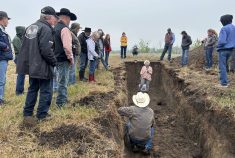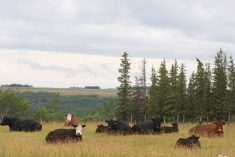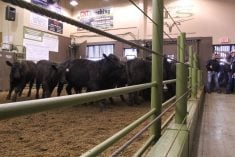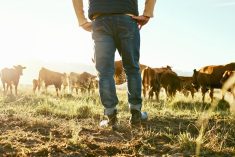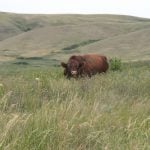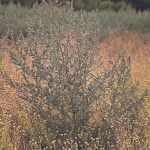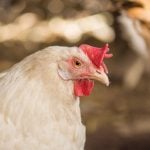You’ve heard it before and you’ll hear it again: Don’t feed the trolls.
Or, more specifically to our industry: Don’t bother arguing with animal rights activists online.
I thought of this while checking out the Facebook comments on one of our features (Auction marts grapple with a shrinking herd and changing industry). Somehow the animal rights folks got wind of it, and they were doling out plenty of wise advice, such as “Just stop eating animals, problem solved.”
Read Also
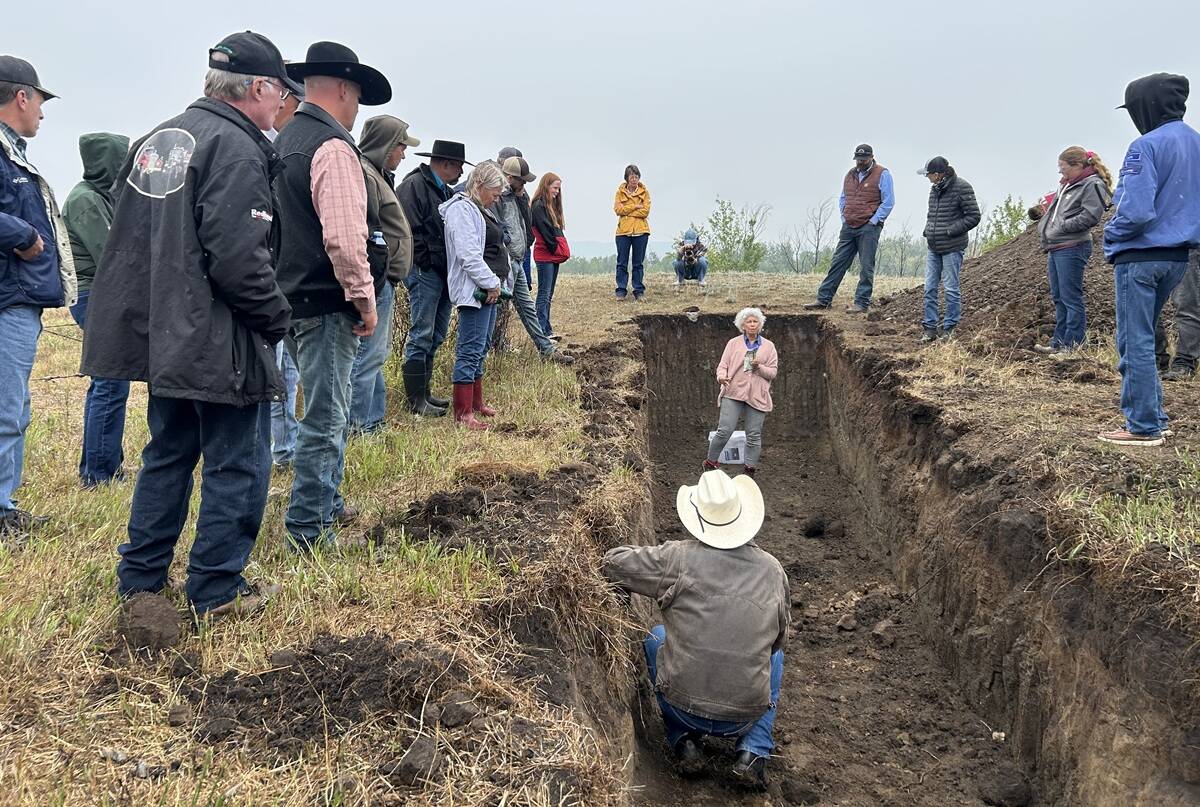
Improving soil health on the ranch
Yamily Zavala, PhD, talks soil health for farmers and ranchers at a grazing club field day at Paradise Hill, Saskatchewan.
As you can imagine, some Cattlemen readers took exception to such comments, and our web editor eventually shut it down before it got too out of hand. We don’t usually have animal rights activists commenting on our social media, but it was a relatively minor dust-up compared to many other online dust-ups.
If a person wants to argue with strangers on the internet for the sake of arguing, that’s their prerogative. But we shouldn’t fool ourselves into thinking that these kinds of flame wars change people’s minds about anything.
Some might be tempted to discuss these issues civilly with animal rights activists, but this is one of the rare times where I think it’s better to skip that, too. Our values are too different, at least when it comes to livestock.
A few months back I watched a Royal Ontario Museum webinar featuring photographer and animal rights activist Jo-Anne McArthur of We Animals Media. McArthur is based in Toronto and has won awards from the UN at COP26 as well as the Wildlife Photographer of the Year award from the Royal Ontario Museum. She’s obviously good at what she does. Throughout the webinar, she was soft-spoken and smiling. I could relate to some of her stories, such as feeling sorry for dogs languishing in people’s yards and never being taken for walks. I write this just to emphasize that she seems like a relatively pleasant person, not an argumentative activist hammering out acrid responses on social media in all-caps.
I imagine McArthur’s reasonable persona serves her very well in advancing her agenda, a lesson we should all take to heart. But make no mistake, she is passionate about the animal rights cause.
“Like conflict photography, animal photojournalists and photojournalists are going to places where generally we’re not wanted. We’re not invited. Whether you’re a conflict photographer or an animal photojournalist, you’re interested in showing individuals caught in systems, caught in wars, caught in suffering and violence,” she said.
Her target is “the use and abuse of animals,” which she blames for COVID-19. I emphasize “use” for a reason. Safe to say most of us are opposed to animal abuse, but opposing “use” would mean the end of many farms and ranches, the food they produce — and in the cases of many ranches and beef farms — would be detrimental to the land they steward.
McArthur has attended events such as a rattlesnake roundups in Texas. I don’t know much about these events, but Wikipedia tells me many are now educational fairs and don’t kill snakes anymore. However, folks were still killing snakes at the one McArthur attended. Rather than confronting people, she documented what was happening (an important lesson for anyone organizing a public event involving animals).
She also said that she’s often invited to farms. I wondered by who, and whether they knew much about her. At any rate, even when she doesn’t witness anything questionable, she believes the visit has been staged and that the abuse is happening behind the scenes. McArthur will also get onto farms with other activists and campaigners. She’s also worked with “campaigning organizations” to document monkey breeding facilities in Southeast Asia, to shutter them (which they did).
Some of McArthur’s most popular images are the hopeful ones, such as a female kangaroo and her joey that survived the Australian fires, or of people showing kindness to animals. She thinks they’re popular because they give us hope, something we all thrive on.
I write all this not to make you throw your hats on the ground in frustration, but to point out that McArthur’s communication techniques are effective — she did speak at the Royal Ontario Museum, after all, and she’s won some high-profile awards. I’d also suggest, again, it’s a waste of time to argue with her, or any other animal rights activist, online or in person. Remember, you don’t owe them a response.
Respect is not something we can make others show to us, even if we’ve “earned” it. It is something we can give to others, and ourselves. If it’s clear that someone is not going to respect you, simply disengage.
Much better to invest time and energy into relationships that have some hope of being mutually respectful and supportive. Talking to people casually at conferences and other events, it seems like the industry itself has become much, much better at working together in the last few years. That is great news because there’s no sense in getting derailed all the time by internal politics when there’s so much common ground to cover.
The same goes for the relationship between many producers and environmentalists. When I was growing up and listening to my ranching grandmother tell stories and talk politics at her kitchen table, there was little trust between the two groups. But in the (many) years since then, things have improved immensely, as it turns out we all have plenty of common interests.
Respecting someone doesn’t mean agreeing with them all the time. Cecilie Fleming, co-chair at the Alberta Beef Producers’ AGM last year, explained her philosophy to our former field editor Piper Whelan. Fleming had opened the meeting by reminding everyone to be hard on the issues, but soft on people.
“When the decision is made, we move forward, and not every decision is perfect, either. We’re human. But we don’t need to be mad at the person who brings forth a different idea,” Fleming said.
“Someone may be bringing an issue from a producer. It might not be their personal opinion, but they’ve done their due diligence by bringing it forward for their producers, and so we have to give the producer the respect.”
Think of how much further ahead we could be if we all adopted that attitude more often.
You can read more on Fleming’s approach, and listen to interview excerpts, here.




